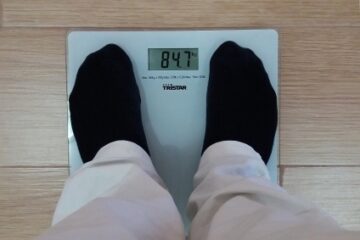How to Handle Criticism for Greater Personal Growth

“Everything is either an opportunity to grow, or an obstacle to keep you from growing. You get to choose.” ~ Wayne W. Dyer
Whenever we hear the word ‘criticism,’ it usually brings up bad memories. It reminds us of some time when someone criticized us for no good reason, and brought up some unpleasant feelings. But did you know that criticism is vital to our personal development? Criticism can be beneficial or detrimental to us. It’s all a matter of how we process it.
Criticism is the necessary feedback that we get from our environment in order to learn. It can help us learn about relationships, academics, and job performance. Without it, we would not improve in any of these areas of our life.[1]
The problem with criticism is that many of us are not very good at receiving it. We tend to take it as a personal attack, and are either crushed by it, or we dismiss it completely. To further complicate things, most people are not very good at giving constructive criticism. This is usually a matter of having good interpersonal skills.
In this article, I will discuss mainly how to deal with criticism in a positive manner. But before I do that, I think it’s important to understand what exactly criticism is, the different types of criticism, and how people react to it.
What Is Criticism?
We generally view the term ‘criticism’ in two different ways; either as an expression of disapproval, or as an analysis and judgment of the merits and faults of something. They are usually referred to as destructive and constructive criticism respectively.
We can usually tell the difference between the two, but not always. Furthermore, destructive criticism can be helpful if there is some element of truth to it. For example, if someone tells you that your outfit is ugly, maybe she has a point. In a work environment, how we dress can have an impact on how much respect we get from our colleagues and superiors, and therefore, impact our career.
Constructive criticism can be useless, or even harmful. Sometimes, people mistake personal preferences with constructive criticism. They may have good intentions, but their insights may be off. Let’s take a closer look at these two types of criticism, and others.
Destructive Criticism
Destructive criticism usually comes in the form of “you’re stupid” or “you’re ugly.” The main purpose is to insult you, and make you feel unsure of yourself. Those who give this type of criticism are usually insecure and have low self-esteem, and need to tear others down to make themselves feel better. Their targets are usually people with equally low self-esteem, because they’re the ones most likely to believe it.
Destructive criticism is used to manipulate us. Critical people usually have an agenda, and want a particular outcome. Since they don’t have control over their emotions, they feel like they need to control others in order to be happy.
To them, a relationship or interaction with another person is a power struggle. They see life as a zero sum competition. You need to lose in order for them to win.
Sometimes critical people have become that way out of habit. It’s how they learned to navigate through life as they were growing up. They think they’re being helpful, and don’t see how their comments, or tone of voice, can be hurtful.
Constructive Criticism
Constructive criticism is the type we get from teachers, role models, and mentors. It is meant to help us learn an important lesson. The person giving us constructive criticism usually has good intentions, though it isn’t always done tactfully.
Most industries rely on constructive criticism to improve their products or services. The food industry relies on criticism from customers, and professional food critics. So does the film industry, academia, and literature.
Constructive criticism is what helps us evolve on a personal level. On a larger scale, criticism is what facilitates the evolution of all systems, such as economic, political, and social.
Mixed Criticism
As the name implies, mixed criticism is a combination of both constructive and destructive criticism. For example, have you ever seen the show Hell’s Kitchen? In the show, world-renowned chef Gordon Ramsay uses humiliation to teach young chefs in his Hollywood restaurant, Hell’s Kitchen.
Mixed criticism is characterized by a combination of motives. The people giving it may truly want to help you, but they also want to put you down. Sometimes critical parents can be this way. It is up to you to determine what is useful, and what is not.
There are some people that say, “I just tell it like it is.” This statement presumes that the person knows the absolute truth about whatever they’re commenting on, which is usually something about you. Now, is it possible for them to know that much about you? I think not.
What they’re really doing is expressing their personal opinion under the guise of constructive criticism. Their motive is usually to control or manipulate you.
Self-Criticism
Most of us are familiar with the voice in our head that tells us we’re not good enough, that we don’t measure up to some imaginary standard. This happens when we compare ourselves to other people. The problem is usually that we compare the way we feel with the image other people portray. That is, we compare our insides to other people’s outsides.
On a higher level, self-criticism can come in the form of personal introspection. We examine our thoughts, emotions, and behavior in a more objective manner. In other words, we’re giving ourselves constructive criticism. The goal is personal improvement.
How Different People React to Criticism
While we all react differently to criticism, there are some similar patterns. Highly sensitive people tend to take criticism personally, and usually feel hurt by critical comments. On the other hand, non-highly sensitive people view criticism more objectively, and are less likely to be hurt by it. It all depends on how they process the criticism.
Highly Sensitive People
Highly sensitive people tend to operate on a more emotional level. They rely more on their emotions to help them make decisions. When someone says something positive about them, they feel good. When someone says something negative, they feel bad. Then they tend to dwell on the emotions whether they’re positive or negative.
There are a couple of reasons why some people are highly sensitive. One of them is physiological. Our emotional memories are stored in the limbic system of our brain. We all process criticism through our emotional memories. However, highly sensitive people tend to do so more than others. High sensitivity is often a genetic trait.[2]
Another reason is their upbringing. They most likely grew up surrounded by other highly sensitive people, and processing events through their emotions was the norm. Then as grown-ups, they tend to surround themselves with other highly sensitive people.
For highly sensitive people, relationships can be difficult, as they tend to be emotionally volatile. The good news is that they can overcome their sensitivity through reconditioning, whether the cause is their upbringing or genetics.
We also tend to become less sensitive as we grow older. We realize that life is too precious to waste it on drama and conflict.
Emotionally Intelligent People
Emotionally intelligent people tend to be more aware of their emotions, and they don’t let them dominate their decision-making. They resist their initial impulses to react to criticism, and are more likely to listen to critics more objectively. They view criticism as potentially valuable input.[3]
There are several reasons why some people have greater emotional intelligence. Two of them are the same as with highly sensitive people: genetics and upbringing. Genetically, they are more predisposed to processing criticism less through their emotional brain, and more through their thinking brain. And their upbringing was probably more stable than that of a highly sensitive person.
Higher education also tends to have an impact on how people process criticism. College, especially graduate school, teaches people to be more analytical in the way they process information. Additionally, criticism is the main mechanism by which students learn, so they’re more likely to listen to it more objectively.
Another factor that influences how people process criticism is personal development practices. These come in various forms, such as support groups, spiritual, and religious practices. Nowadays, it seems like more people are involved in some form of personal development.
Dealing with Criticism
Dealing with criticism in a positive manner is an important life skill to have. You can use it to either improve yourself, or let it lower your self-esteem.[4] This can be a challenge when our initial impulse is to react, instead of listening to the critic. But if you can learn to handle criticism positively, you can accelerate your personal development. Here are a few tips.
Keep Your Emotions in Check
The first thing to do when someone criticizes you is to keep your emotions in check. Start by paying attention to your emotions, and resist the temptation to react. If you feel like you want to react, take a deep breath. Then begin listening to the critic to assess whether there is something you can learn from the comments.
Paying attention to our emotions in real time isn’t something many of us do, but it can be invaluable for helping us understand ourselves better. After a situation that evoked an emotional response, you can take some time to reflect what you felt, and why. You may not receive an answer immediately, but by simply asking yourself a question, you prompt your subconscious mind to start searching for an answer.
By staying calm when being criticized, you can diffuse a potentially volatile situation. You also diminish people’s control over you.
Consider the Source
The source of the criticism is an important factor in evaluating its validity. A trusted professor who has your best interest in mind is likely to give you good constructive criticism. But keep in mind that not everyone who is trying to give you constructive criticism does it in a tactful way.
I once had a professor who would humiliate students in front of the whole class in order to point out the weakness in the students’ presentations. One student was giving a presentation on missile defense systems, and the professor sensed that he wasn’t sure what he was talking about. So the professor asked him to explain what an intercontinental ballistic missile (ICBM) was. He couldn’t, and was totally humiliated.
Keep in mind that people who don’t know you, and have no interest in helping you, probably aren’t going to give you helpful feedback. Whether their criticism is meant to be constructive or destructive, it is not helpful if they don’t have a basis for their remarks.
Is the Criticism Valid?
Determining whether criticism is valid isn’t always clear-cut. You may get well-intentioned criticism from people expressing their personal preferences. For example, they may say your cooking needs more salt. Or, you may receive a hurtful comment that may have an element of truth, such as, “you’re a lousy cook.” You may not be that bad, but maybe your cooking does need some improvement.
It is up to you to use good judgment to determine if a criticism is valid. This comes from keeping your emotions in check, keeping an open mind, and experience. If you’re not sure whether a criticism is valid, you can always get a second opinion. Consult with a trusted friend, or another professor or colleague.
Constructive criticism is usually pretty easy to spot. The person giving it is usually more experienced than you in the subject matter, and tries to give it in a tactful manner. But you still need to evaluate it to determine whether it is valid. You may have good reasons for disagreeing with the criticism. I’ve disagreed with my professors on several occasions.
Some people give you destructive criticism, such as “you’re an idiot.” These types of comments are only meant to put you down, and evoke a negative reaction from you. There is nothing helpful about such name-calling, so stay calm and just ignore them.
However, I wouldn’t always dismiss destructive criticism. Sometimes, there is some helpful information there. If a superior at work says “you’re incompetent,” it’s pretty clear that he meant it to be hurtful. But there may be an element of truth to the comment.
In such cases, keep your cool. He may have a valid reason for the remark. Then maybe ask why he feels that way. You can ask what it is about your job performance that he feels is sub-standard. He might give you a helpful answer. And when he’s done, thank him.
How the Mindfulness Practice Can Help
There are several ways the mindfulness practice can help you deal with criticism in a positive way. Here are a few:
Helps you keep your emotions under control. The mindfulness practice helps you develop inner strength by calming your thoughts and helping you overcome insecurities that can trigger an emotional response when being criticized. If you can stay calm when being criticized, you can keep a potentially volatile situation from escalating. You also make it easier for people to give you constructive criticism.
Helps you develop self-awareness. When you are mindful, you have greater awareness of your strengths and weaknesses. This will make it easier to assess the validity of people’s criticism. Mindfulness also helps transform your inner critic. Instead of being overly critical of yourself, you’ll be able to look at yourself more objectively, and therefore, give yourself constructive criticism.
Helps build your self-esteem. When you develop greater self-awareness through mindfulness, your self-esteem will grow. You will begin to see many more possibilities in your personal development. This will make your life more interesting and exciting, and you’ll begin to feel much better about yourself.
Keeps you from letting others control you. As you develop greater self-esteem and self-control, it will become harder for others to control and manipulate you. Some people try to provoke you by pushing your buttons. However, if you’re able to stay calm in these situations, you render them powerless over you.
Improves your intuition. Our emotions and preconceived ideas can interfere with our intuition. When your mind is calm and you are more open-minded, your intuition will be more reliable. You will be better able to assess people’s motives for their criticism, and whether or not the criticism is valid.
Final Thoughts
In this age of social media, it has become more important to learn how to handle criticism in a positive manner. Remember, we need criticism to learn and grow. It is essential for our personal evolution, and the evolution of every area of our society.
How to handle criticism is a valuable skill you can develop. It takes some time and effort, but it is all well worth it. You will become a more well-rounded person, and your personal development will proceed at a faster pace.
I know criticism can sometimes be difficult to accept. Some of my harshest critics have been my greatest teachers. They were the ones who had the guts to tell me what I needed to hear, and not what I wanted to hear. I hated them for a long time, and then grew to love them. I am now grateful for them having told me the truth about me when I most needed to hear it.
If you enjoyed this article, sign up below for the Blooming Lotus Newsletter and we’ll notify you when the next article is released:

References
[1] Greatist: How to Handle Criticism Like a Pro
[2] Highly Sensitive Refuge: Why Highly Sensitive People React So Strongly to Criticism
[3] Inc.: How Emotionally Intelligent People Handle Criticism: They Don’t Do This
[4] SkillsYouNeed: Dealing with Criticism




0 Comments